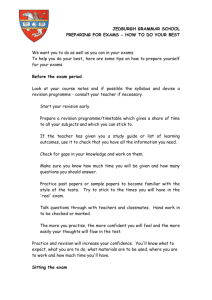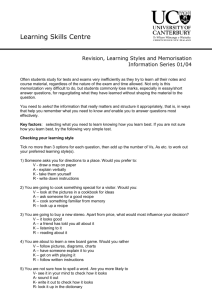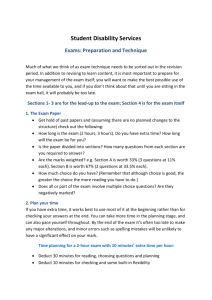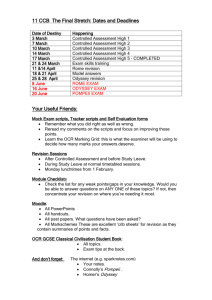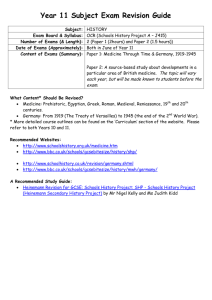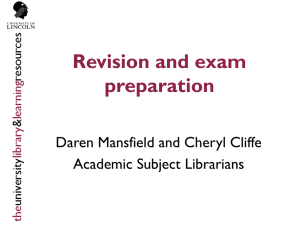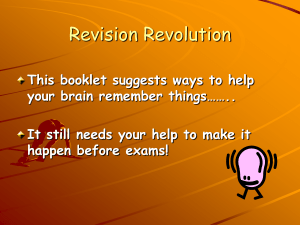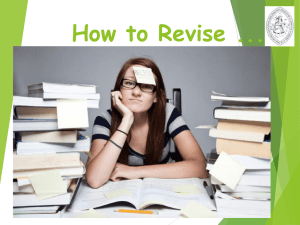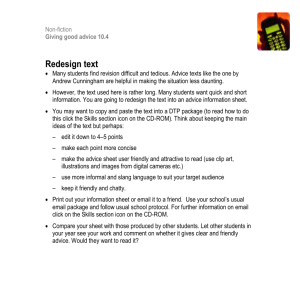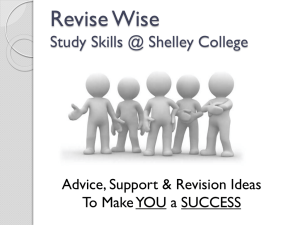Revision tips 21st century science
advertisement
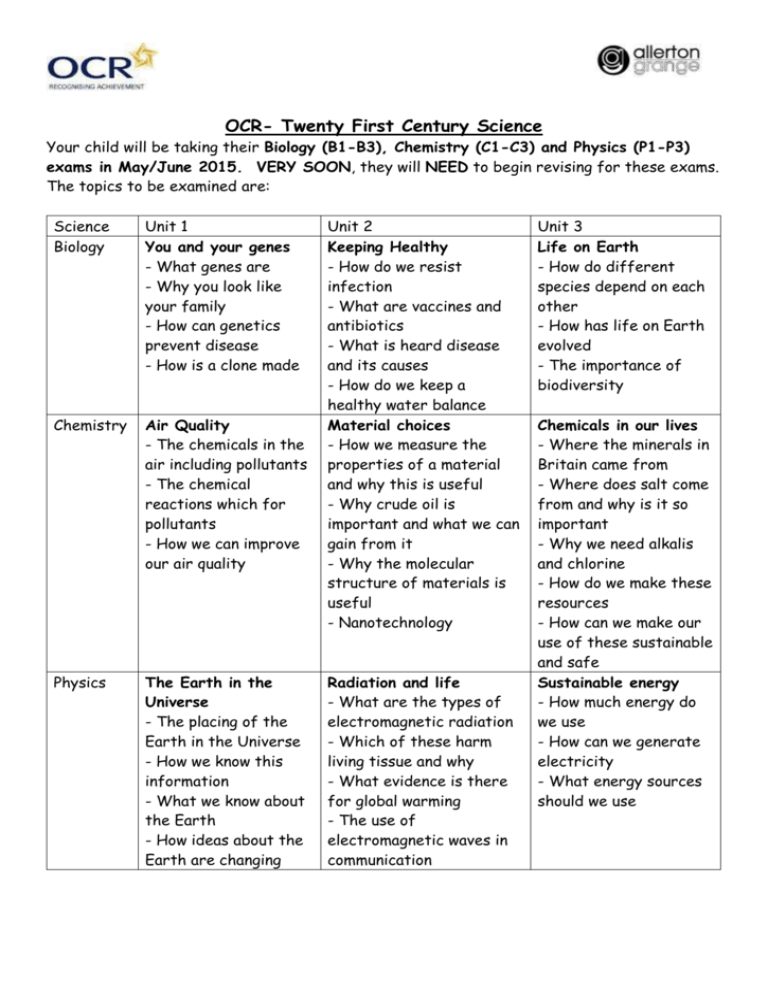
OCR- Twenty First Century Science Your child will be taking their Biology (B1-B3), Chemistry (C1-C3) and Physics (P1-P3) exams in May/June 2015. VERY SOON, they will NEED to begin revising for these exams. The topics to be examined are: Science Biology Unit 1 You and your genes - What genes are - Why you look like your family - How can genetics prevent disease - How is a clone made Chemistry Air Quality - The chemicals in the air including pollutants - The chemical reactions which for pollutants - How we can improve our air quality Physics The Earth in the Universe - The placing of the Earth in the Universe - How we know this information - What we know about the Earth - How ideas about the Earth are changing Unit 2 Keeping Healthy - How do we resist infection - What are vaccines and antibiotics - What is heard disease and its causes - How do we keep a healthy water balance Material choices - How we measure the properties of a material and why this is useful - Why crude oil is important and what we can gain from it - Why the molecular structure of materials is useful - Nanotechnology Radiation and life - What are the types of electromagnetic radiation - Which of these harm living tissue and why - What evidence is there for global warming - The use of electromagnetic waves in communication Unit 3 Life on Earth - How do different species depend on each other - How has life on Earth evolved - The importance of biodiversity Chemicals in our lives - Where the minerals in Britain came from - Where does salt come from and why is it so important - Why we need alkalis and chlorine - How do we make these resources - How can we make our use of these sustainable and safe Sustainable energy - How much energy do we use - How can we generate electricity - What energy sources should we use Sources of revision: Exercise books Text book Tests and targeted areas from lessons Revision guides available from the Science department. £7 for the course. These contain not only revision information but also exam questions. BBC bitesize: http://www.bbc.co.uk/education/subjects/zrkw2hv Class tasks. Home revision: individual and group. Tuesday revision sessions after-school in the Science pod. OCR website for past papers: http://www.ocr.org.uk/qualifications/gcse-twenty-firstcentury-science-suite-science-a-j241-from-2012/ Doddle learn has a large amount of resources which the class teacher will assign but there are also power points that the students can access. Pupils need to focus chiefly on four areas: Subject knowledge and understanding of topics listed above – they may need to apply their knowledge to new situations or circumstances. Key words and definitions – make a glossary of key words on flash cards to learn them Literacy - students need to answer longer response questions e.g. Quality of Written Communication questions are worth 6 marks. The students need to plan this in the same way as they would plan an English answer. Numeracy – students will need to be able to interpret data from tables and graphs as well as drawing their own. They will also need to carry out some calculations in each paper. Equipment – in order to be fully prepared for their lessons and exams students will need: Stationery – pens (black ink), pencil, eraser, sharpener and ruler. Calculator. All of the above are covered in lessons BUT they need to be reinforced independently by pupils, ideally with your support. Should you have any questions then please contact your child’s relevant teacher. Mrs A Cruickshank -Curriculum responsibility for OCR science 11AG/Sc7 Miss N Mahmood -11Ag/Sc7 Mr A Ali -11Ag/Sc8 Ms D Cruickshank -11Ag/Sc8 Ms I Idowu -11Ag/Sc9 Ms J Cutts -11Ag/Sc9 Miss N Bansel -11Ag/Sc10 Miss N Wilson -11Ag/Sc10 ALLERTON GRANGE SCIENCE DEPARTMENT
